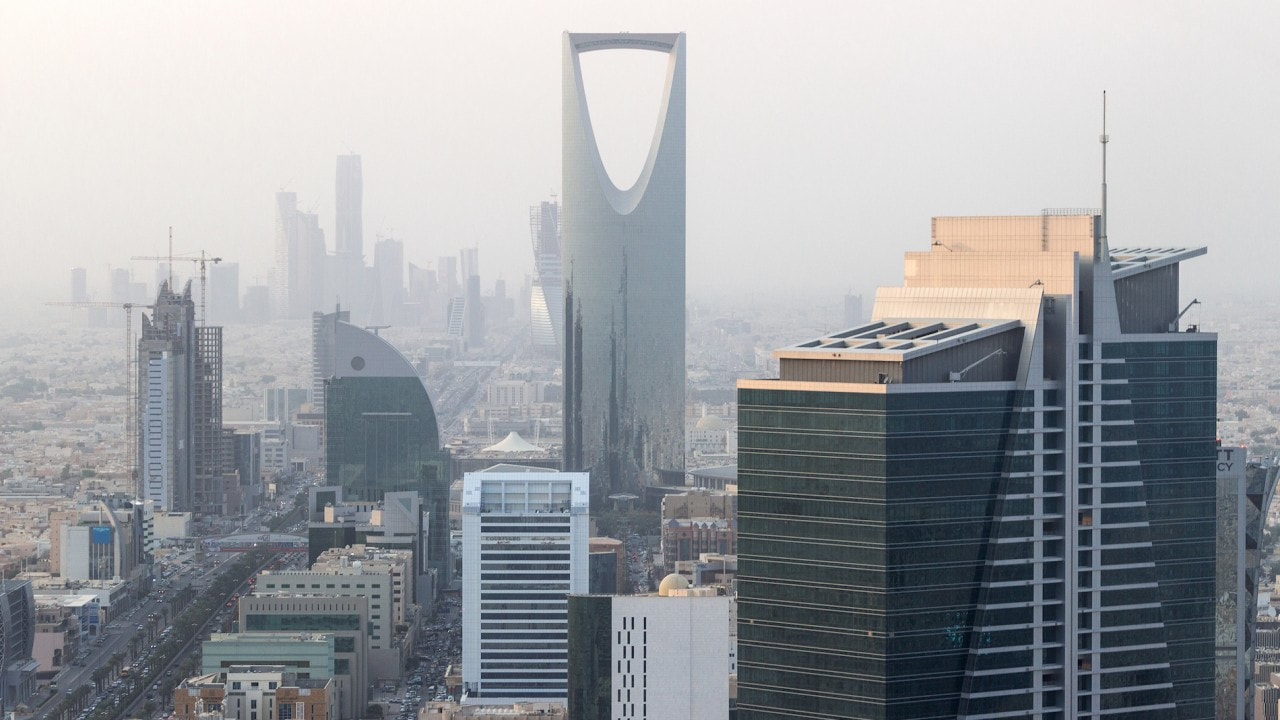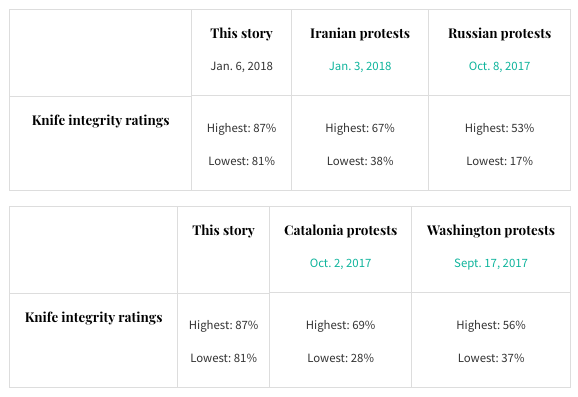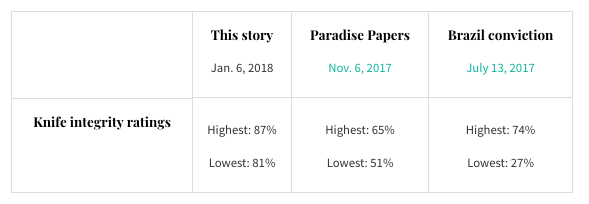|
Most news reporting the Knife analyzes has a high degree of distortion, meaning it’s not very objective or data-based. In fact, the average article we analyze is 48 percent distorted, and that’s the average of at least 2,192 news articles we’ve examined over the past six months! You’d think a story that involves members of a royal family, government protests and arrests might be similarly distorted, but that wasn’t the case with the coverage of the arrest of 11 Saudi princes announced on Saturday. We analyzed Al Jazeera, BBC, CNNand Reuters, and they all provided reporting that was largely objective (take a look at their ratings here). We compared these four articles on Saudi with two similar types of stories we’ve analyzed: stories about protests, and ones about corruption. The specifics, scope and consequences of the other stories vary greatly in comparison to the Saudi coverage — in other words, this is by no means “apples to apples.” However, the comparison raised important questions, such as: Why were the other stories more distorted than Saturday’s articles on Saudi Arabia? Was it the absence of reported violence in the Saudi story? Was it that the protesters, in this case, were royalty? Was it the specifics of the issues involved? Were reporters less emotionally invested in the story than in those on, say, President Trump? You be the judge. Protests and arrests This news event we analyzed today is about 11 Saudi princes who protested recent government measures requiring members of the royal family to pay for utilities, as well as a new value-added tax on utilities and other commodities. We’ve covered several government protests in the U.S. and abroad during the past year, some of which have also resulted in arrests. For comparison, here are Knife ratings for four other stories on protests. (A higher integrity or overall rating means the coverage was more objective.) Note that the number of protests and protesters in the examples below are far greater than the protests of the 11 princes. Also, violence was reported in the other protests, but not in this Saudi Arabia story. What they all have in common is grievances against the government. Corruption or alleged corruption The Saudi Arabian government has recently investigated or arrested individuals suspected of corruption, including a billionaire prince and current or former government ministers. Although this wasn’t the central focus of this article, the outlets we analyzed did reference those events. Let’s compare this coverage to past corruption stories we’ve analyzed. For background, in the case of the Brazil story, former President Lula da Silva was tried and found guilty of corruption, although he has denied the charges against him. The coverage of the so-called Paradise Papers implied wrongdoing involving offshore accounts, without basing the implication on data and before any formal investigation was underway. Objective reporting helps us get a more accurate, balanced and complete picture of events, and assists in developing critical thinking and discernment skills. As media analysts, we welcome reporting like this and the challenges it poses (for instance, because this coverage was more objective, our spin analysts struggled to find as many examples as we usually find for our Top Spin Words). As a fellow news consumer, we hope you also welcome the change of pace. Kudos to these four outlets and others that reported the story this way.
Comments are closed.
|
Jens Erik GouldJens is a political, business and entertainment writer and editor who has reported from a dozen countries for media outlets including The New York Times, National Public Radio and Bloomberg News Archives
February 2018
Categories
All
|



 RSS Feed
RSS Feed